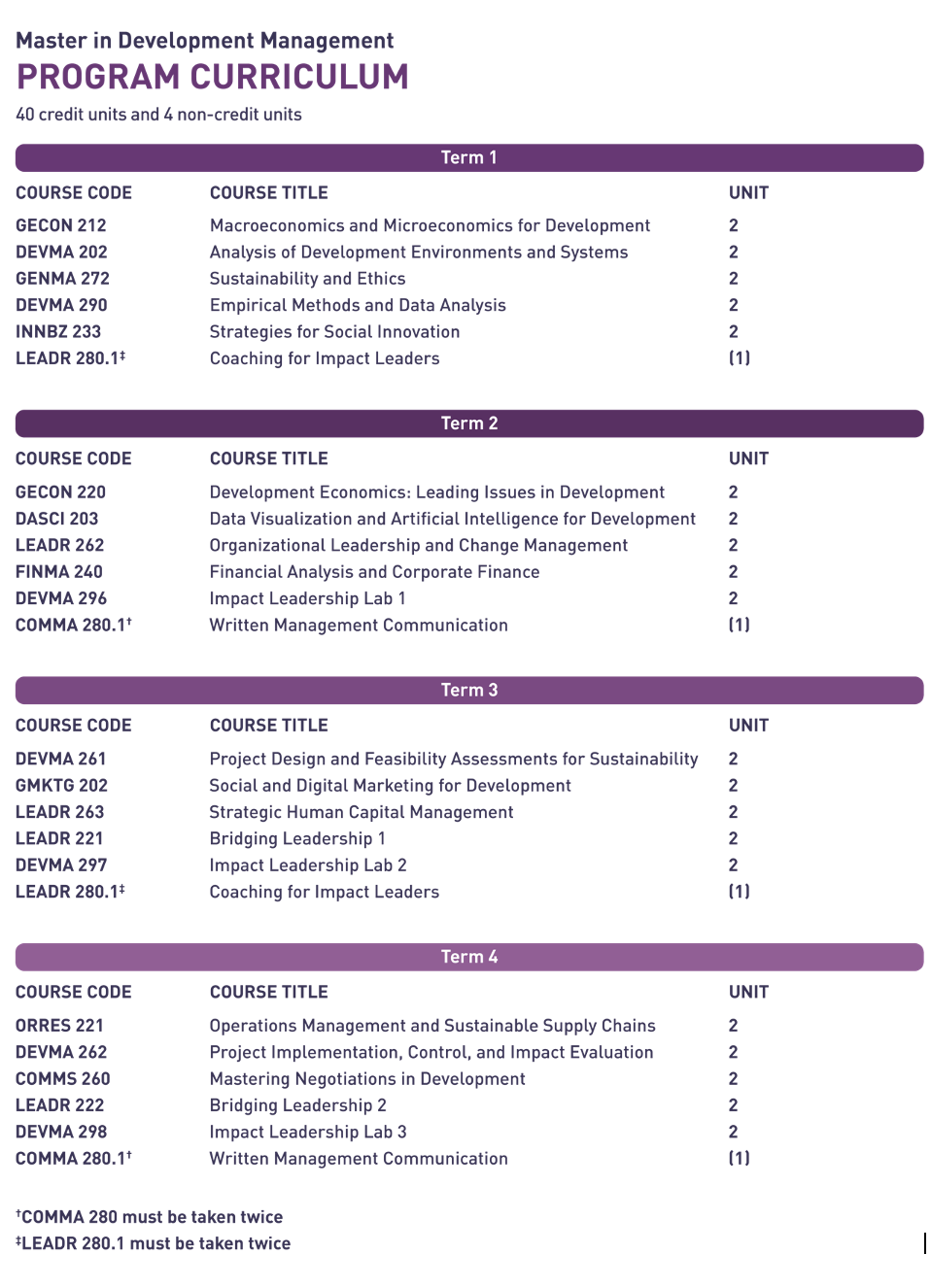
PROGRAM AT A GLANCE
The MDM curriculum design features a cluster of innovative courses and a laboratory for impact leadership, delivered through a blended, flipped, and problem-solving approach to learning – all of which enhances AIM’s brand of education for the 21st century.
An MDM student’s learning journey is defined by four overlapping phases across four terms that commence in January and end in December of each year. These phases are environmental analysis and organizational analysis in Terms 1 and 2; and social impact strategy and impact evaluation & pivots in Terms 3 and 4.
MDM courses are grouped into clusters, namely:
- SDG and Wicked Problems;
- Leading Under VUCA;
- Innovation and Complexity Thinking;
- Program and Project Development and Management;
- Managing Impact Organizations;
- Research Methods and Impact Measurements;
- Impact Leadership Lab; and,
- Written Management Communication

The Asian Institute of Management is constantly innovating its programs to adapt to the needs of the times. Note that the above term schedule and list of courses may be subject to change.
IMPACT LEADERSHIP LABORATORY
The MDM program has three concentrations—Social Entrepreneurship, Policy & Transformation, Impact-first Investing—and they are delivered through the Impact Leadership Laboratory (LAB). The LAB provides the students with the opportunity to work with organizations in tackling real development problems, in each of the concentration areas.
The LAB allows MDM students to work on meaningful projects or programs with the potential to transform organizations and industries into impact-driven ones. In the process, the student’s knowledge, creativity, and agency are cultivated through problem-focused learning. Instead of lectures and classroom discussions, students will work in teams of 3 to 4 and will be guided by professors and industry experts in pursuing innovative solutions to persistent development challenges, and engaging in active inquiry, iterative solution generation, and rapid prototyping of potential solutions.
COURSE DELIVERY
To reflect the experience and expectation of today’s students, the MDM mode of delivery will harness technology and the virtual space to enhance AIM’s brand of education in case teaching, student-centered learning, and “educator as a facilitator of knowledge”. MDM is to be delivered in a hybrid setup, with coursework equally divided between synchronous (real-time) activities and asynchronous (student-paced) sessions.
MDM upholds a problem-solving approach to learning, as opposed to a purely discipline-oriented and traditionalist education. This creates “The Flipped Classroom”, where instructions are student-centered; professors spend less time lecturing and more time imparting ways to think, analyze and solve problems; and in-class activities are focused on interactive learning.



